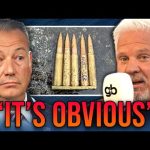America’s political divide erupted into crisis this September with the shocking assassination of Charlie Kirk, the influential conservative activist and founder of Turning Point USA. Kirk was gunned down while speaking at a Utah Valley University event, sending immediate shockwaves through the right and a flurry of accusations and unrest from the left. For conservatives, Kirk’s death was a tragic loss—a devoted advocate for liberty, patriotic values, and the religious faith that shaped his public mission. As Republicans mourned, their response was marked by calls for prayer and national reflection, in stark contrast to the disorder that followed from some quarters of the progressive left.
The aftermath saw the usual suspects in the media rush to assign blame, predictably amplifying the tired narrative that “both sides” were responsible. Yet for millions of Kirk’s supporters, grief was channeled into unity. Memorial services across the country drew tens of thousands, with President Trump and Vice President Vance hailing Kirk as a martyr for the ideals on which America was founded. In churches and community halls, the spirit of peaceful remembrance was palpable, defying the violence and mockery displayed by radical activists clinging to their tired playbook of outrage and vandalism.
Law enforcement in Utah and federal officials worked around the clock in the wake of Kirk’s killing, eventually apprehending the suspect on compelling forensic evidence, including DNA and text message confessions. The facts of the case laid bare the stark ideological rift: Kirk’s assassin reportedly held extreme political animosity and scrawled mocking slogans on ammunition, targeting Kirk as a “fascist.” Yet the attempt to silence Kirk only seemed to strengthen the resolve of his allies and supporters, who refused to let chaos and aggression drown out their message of faith, family, and freedom.
Kirk’s memorial service in Arizona was as much a political rally as a religious revival, with conservative leaders and thousands of attendees pledging to continue his work and defend his legacy. Trump’s remarks doubled down on the theme: America’s greatest threat comes not from robust debate, but from unchecked violence and left-wing extremism. The Republican Party seized the moment, contrasting their unified agenda with the spectacle of anger and division playing out on the Democrat-leaning left, many of whom chose to deride Kirk or disrupt memorial tributes.
As the country reels, Kirk’s assassination stands as a stark warning of the consequences of demonizing opposing views and inflaming partisan passions. In a climate where mainstream outlets too often downplay leftist violence or equate prayerful memorials with rioting, Americans are left craving genuine leadership and a return to basic civility. Conservatives now feel galvanized, not cowed, promising that Kirk’s voice—and the movement he built—will echo even louder in an election season charged with emotion and consequence.




